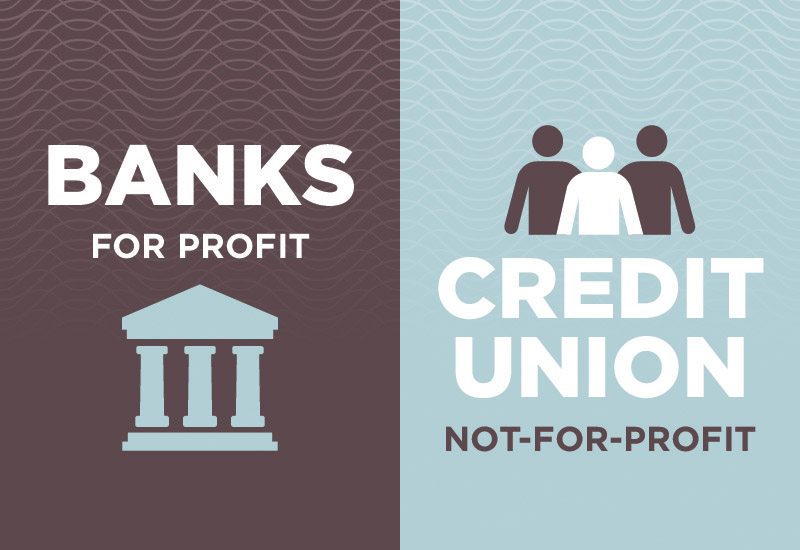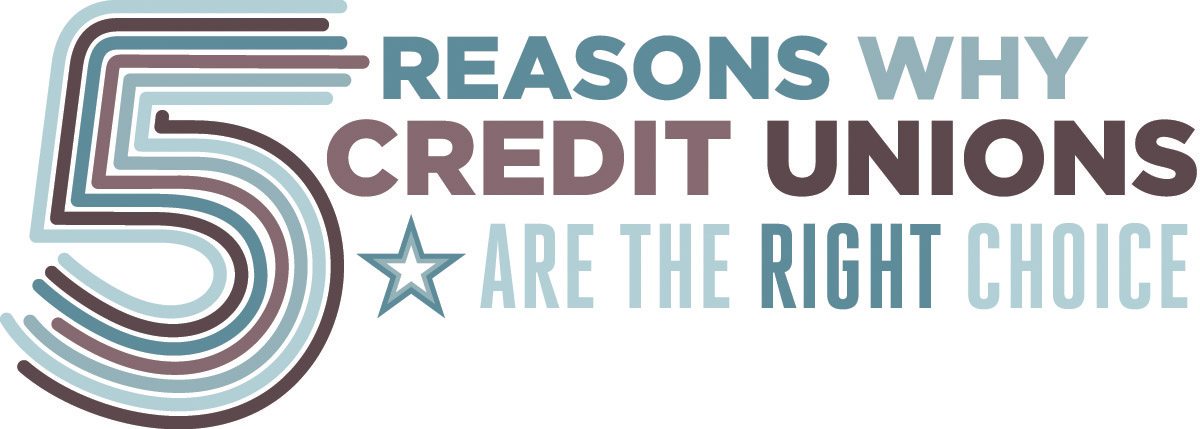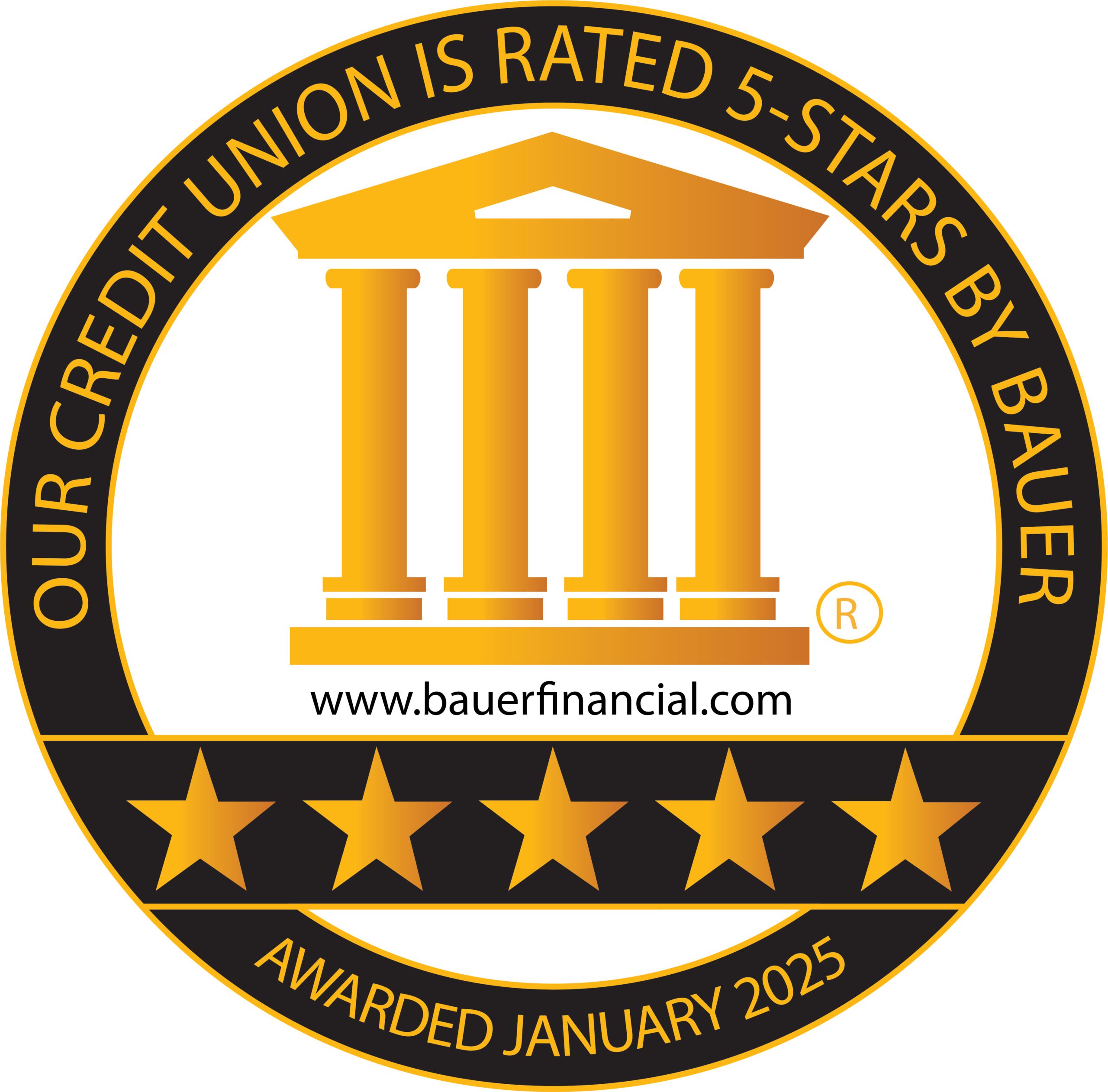Even if you have been a member of a credit union for years, you may not fully realize the differences between a credit union and a bank. After all, a credit union offers many of the same services as a bank — including checking and savings accounts, auto and home loans, and credit card and debit card services.
Yet, the differences between a credit union and a bank can be significant, especially since you spend less for the same services as a credit union member. In the long run, a credit union membership could actually help you pay off debts faster, travel more or retire more comfortably — all because you’re able to keep more of your hard-earned cash.
Read on to gain a better understanding of how a credit union functions.
First, it’s important to take a look at some of the major qualities of a credit union. We gathered 5 of the most important things you should know…
Credit unions are not-for-profit organizations.
This is one of the main differences between a bank and a credit union. Banks are designed to make a profit; they’re seeking ways to make sure their stockholders are making money on their investments.
Credit unions, on the other hand, are owned by their members. As part of their non-profit structure, credit unions exist to serve those members. Any excess profits are returned to their members through higher interest rates on savings, lower interest rates on loans, reduced fees or other forms of dividends.
Credit Unions generally have lower fees than banks.
One of the major differences you’ll notice between a bank and credit union is the difference in fees and interest rates. In many cases, such as with Natco Credit Union’s credit card services, you won’t be charged for annual fees and application fees. Also, to open a membership account, you will only need to pay a fee of 25 cents and deposit $5 into an account.
Credit unions are not open to the general public.
With any credit union, you must meet certain criteria before you’re able to join. Some credit unions require that you are in a specific profession, such as teaching. Other credit unions are based on other membership factors, such as the place you work or live. With Natco, for example, our members all live or work within one of the following Indiana counties: Wayne, Fayette, Randolph, Henry, Rush, Union, Franklin; or must be an industrial worker within a 25-mile radius of Richmond, IN. You also may qualify for Natco Credit Union membership if you’re an immediate family member of an existing Natco member.
You get more personalized service.
Since you are a part owner of a credit union as a member, you will receive more services designed to fit your needs. At Natco, that means you can get personal consulting that will help you make the best decisions for your future, including making major purchases like homes and vehicles, managing your funds and building a savings account, or taking out loans for life’s emergencies.
You benefit from government resources.
As a member of Natco Credit Union, as with some other credit unions, you benefit from federal programs designed to help people find more affordable options for purchasing vehicles and borrowing funds to help make ends meet. Natco recently received a U.S. Treasury CDFI Grant that can help you get on the road to a better financial future.
Some Conveniences Offered by Credit Unions
Some consumers have come to enjoy many of the conveniences offered by banks, such as direct deposit, ATMs and automatic withdrawals. In many cases, credit unions like Natco, offer many of these same conveniences.
Here are some of the conveniences you receive as a member of Natco Credit Union:
- Mobile banking
- Mobile deposit
- Direct deposit
- Payroll deductions
- ATMs at each office
- Credit alerts
- Debit alerts
- Online banking
- e-Statements
- Automated bill pay
- Overdraft courtesy protection
BANKS
- Business Plan
- Who Benefits?
- Who Makes Decisions?
- Growth Driven By
- Economic Lift Goes to
BANKS
- For-Profit
- Stockholders
- Paid Board of Directors
- Increasing Profit Margins
- Wall Street
CREDIT UNIONS
- Not for Profit
- Members
- Volunteer Board of Directors
- Return to Membership
- Local Community
Want to learn more?
If you’re interested in learning more about the benefits of your credit union membership — or if you’re ready to become a member, we’re happy to help. Contact us at (765) 962-2561 for more information.










